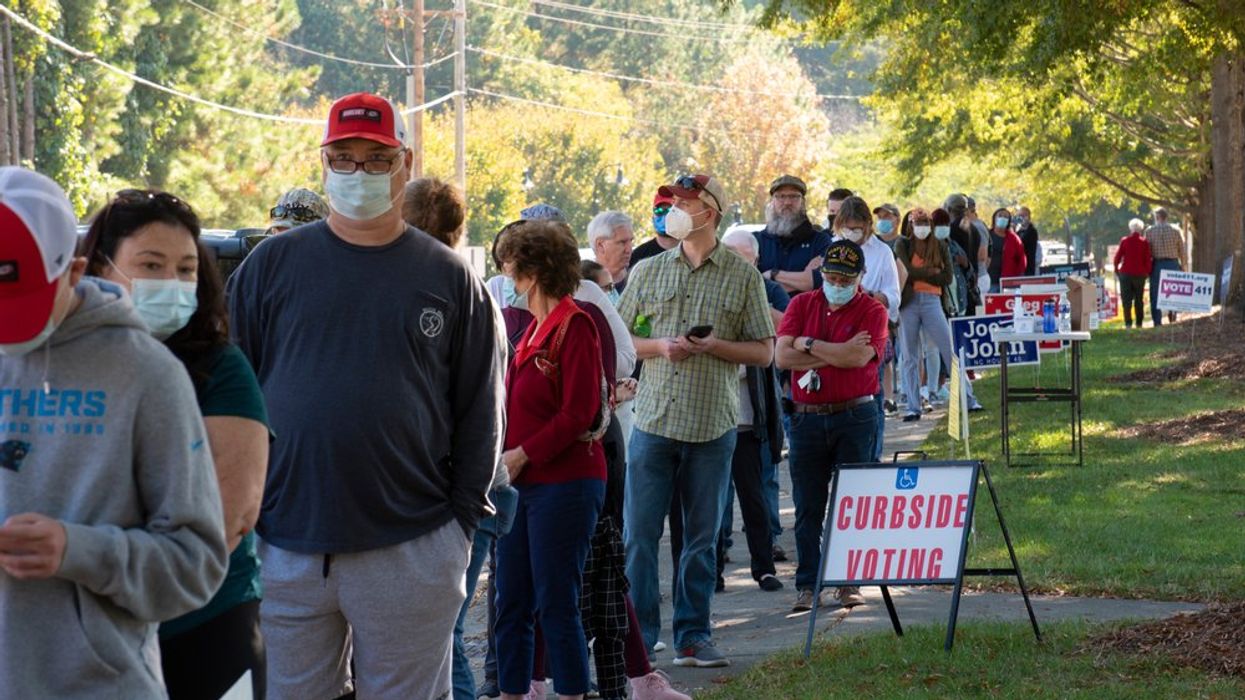North Carolina Republicans are pushing voting restrictions that could have major ramifications for elections in the state.
Alongside limitations on same-day and mail-in votings, as well as new voter identification laws, conservative lawmakers in North Carolina have proposed a complete overhaul of state and county election boards. The proposals would put more power in the hands of the state Legislature, which Republicans recently earned a veto-proof supermajority in.
The three bills could be considered in committee meetings as early as this week. Democratic state Rep. Allison Dahle, vice chair of the House committee that will soon be considering the bills from the Senate, told NBC that the proposals are “undermining democracy, period. Plain and simple.”
Senate Bill 749 seeks to overhaul state and local election boards — five-person bodies that oversee elections and certify results. Currently, the boards are comprised of three members of the governor's party, and two members of the other party. The new bill would strip the governor of their power in the process, creating an eight-person Board of Elections with four members appointed by each party. While it attempts to steer away from partisanship, there are no proposed solutions in the likely event that the board is deadlocked.
Local boards would also need unanimous approval of early voting sites. If just one member objects, the state board will decide. If it deadlocks, or cannot for any reason, the only early voting location would be the county board of elections office.
This is the fourth time Republicans have attempted to take over the board of elections since Democrat Roy Cooper won the Governor’s office in 2016. The first two attempts were declared unconstitutional by the state Supreme Court, whereas the third failed as a ballot measure in 2018.
The second bill, House Bill 772, would allow poll watchers to “move freely” around voting sites. They would be allowed to stand up to 5 feet away from voters and poll workers, and would be permitted to listen and record most activities inside the polling site, including conversations that identify voters and their addresses.
Senate Bill 747, which also passed the Senate, proposes several new voting restrictions, including requiring absentee ballots to be turned in by Election Day, eliminating a three-day grace period previously allowed for ballots postmarked before or on election day. The bill would also require those registering to vote on election day to have multiple forms of identification with the same address, such as a driver’s license and utility bill.
Another provision in the bill would mandate “two-factor authentication” for absentee ballots. According to state Sen. Natasha Marcus, a Democrat who opposed the legislation, the Republicans could not explain what the “nonsensical” provision even entails.
“We literally asked them over and over: What does that even mean? That doesn’t make any sense, you should take that out of this bill,” she said. “They couldn’t explain it, but they wouldn’t take it out either.”
One provision that has already been pushed through is voter identification laws. While originally declared unconstitutional by the state Supreme Court, the Republican supermajority reversed the decision. Christopher Cooper, a professor and director of the Public Policy Institute at Western Carolina University, said the all of new bills all create uncertainty for voters within a system that’s already shifting.
“There's so much up in the air about what the Board of Elections is going to look like, how voter ID is going to be implemented, when our mail-in ballots are going to be allowed to be accepted," he said. "Anybody who says they can tell you what North Carolina elections are gonna look like in 2024 is lying."



















































